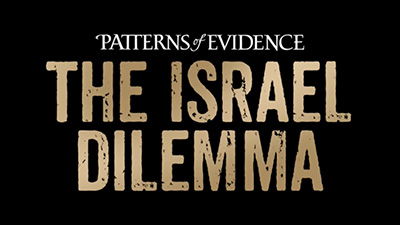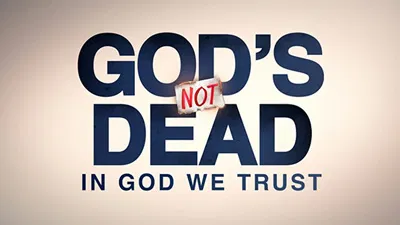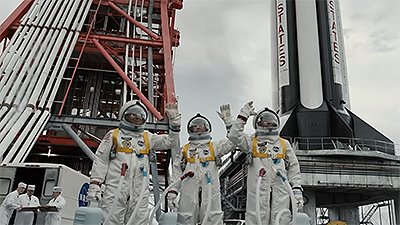
The Guardians Value Life—They Just Don’t Know Why
Guardians of the Galaxy Volume 3 inadvertently refutes evolutionary ethics.
Spoiler Alert Ahead: If you haven’t seen the movie yet and still wish to, stop reading here.
The Guardians of the Galaxy are a team of misfits and criminals (anti-heroes) in the Marvel universe that banded together for a common cause. Guardians of the Galaxy Vol. 3 revolves around Rocket, a gruff bipedal mammal who resembles a raccoon from earth (though he vehemently disagrees), and his origin story, which comes back to haunt him. The Guardians have settled into a home on Knowhere, an asteroid-sized skull of a celestial (an ancient race of godlike beings said to have had a hand in the universe’s formation) that is floating through space. Weary from the taxing and emotional events of the past few years (see Avengers: Infinity War and Avengers: Endgame), the team seems to have little purpose, hope, and drive.
The audience doesn’t get much time to process what’s happening when, after the introductory credits, a gold person slams through space and into Knowhere, where he fights Rocket and critically injures him.
After the threat is neutralized, the frantic fight for Rocket’s life begins. As Guardians Peter Quill and Nebula try to perform first aid on Rocket, they almost kill him due to a self-destruct feature built into the technology implanted in his body. (We discover that this technology was set in place as a fail-safe to prevent poachers from stealing the technology within Rocket.) This technology forced accelerated evolution on him and “evolved” him to be humanlike. Through revealed flashbacks within Rocket’s memories, the Guardians discover that their teammate had a harrowing childhood fraught with violence, pain, and fear. They then confront the cause of terror in young Rocket’s life—a man called the High Evolutionary.
Evolution Used to Explain Fiction
In fictional worlds where the idea of millions of years of change is widely accepted and used as literal history for the origins of the galaxy, it’s not uncommon to see fantastical creatures that look like crosses between two species or an incomplete mesh of a few indistinguishable beasts. Animals (not only the humanoid “evolved” ones) are equated to humans in value. This rings true for Marvel’s superhero universe, modeled after our modern-day world but with superpowered humans and aliens added.
As the movie franchise grows, so do the science fiction layers of multiverses, alien civilizations more advanced than ours, beings likened to gods that have ruled for eons, and one single thread of “truth” shared with the real world that is often used to explain the fantasy of the story—evolution.
A Fruitless and Violent Quest for Perfection
The self-proclaimed High Evolutionary is a man who has obsessively devoted his life to accelerating evolution in typically “peaceful” animal species to achieve a perfect utopian society. With a few different species already under his belt, he is regarded as a god in some parts of the universe. Through technology manipulating biological development, the High Evolutionary “created” Rocket by experimenting on him when he was a young raccoon to make him sentient like a human.
As Rocket grows older, the High Evolutionary takes him under his wing to teach him, though he consistently reminds Rocket that he is only a stepping stone to perfection.
‘Mo egraste forn, mo egalore fornonte,’ which translated is, ‘Be not as you are, but as you should be.’ It’s our sacred mission to take the cacophony of sounds around us and turn it into a song. To take an imperfect clump of biological matter such as you, and transform it into something . . . perfect. And we’re halfway there, aren’t we?
We see clips of a young Rocket with crude metal constructs emerging from his chest as the High Evolutionary shows him the process he uses to quickly evolve creatures for his experimentation.
“Guide any experiment through a million years of evolution in a moment,” the High Evolutionary explains to young Rocket before flipping a switch to begin the grotesque process of animal mutation, which changes the animals into violent beasts, the exact opposite of what he wants. After a moment of anger at another failure, the High Evolutionary gives the command to cruelly incinerate the test subjects before young Rocket’s eyes.
The High Evolutionary seems to keep failing at this pursuit of perfection through mechanically forced evolution—with peaceful humanoid beings as the idea of perfection. He considers himself a god figure and even proudly claims, “There is no God—that is why I stepped in.” He not only assumes a godlike persona (or rather a human attitude of pride and arrogance), but the writers impose qualities on the High Evolutionary that resonate a sin-filled world’s view of an unfair, unjust, and tyrannical god.
This entire process that Rocket witnesses in his younger years is a compressed reflection of real-world scientists’ view of evolution—mistakes upon mistakes cruelly discarded and picked through, ending ultimately in death. People who believe in evolution see the death problem within it and blame a sinless, perfect God for making a universe with endless death and suffering—but from Scripture, we know that humans brought death into the world through their disobedience to God, which resulted in the curse of sin.
The peak of evolved species in the movie seems to be humanity or humanlike races; there is no reimagining of anything better than humans, save for the long-dead ancient races regarded as gods. When your worldview makes man into a god, how can you conceive of anything higher and more worthy?
This seems to go against the idea of evolution continually bettering species and instead appears to support species devolving over time. The movie takes this a step further in a seemingly innocuous way by portraying animals as humanlike—essentially devaluing humans even more.1
The movie reinforces that the model of evolution requires death, and therefore sin, to function.
The movie reinforces that the model of evolution requires death, and therefore sin, to function. The High Evolutionary’s struggle reflects the actual history of the world in reverse—he tries creating perfect beings out of imperfect things (when God created perfection out of nothing), then tries to start a utopia on a planet called Counter-Earth that appears perfect but keeps falling apart. In reality, God created everything very good, and there was no sin (Genesis 1:31). But when sin came into the world, it brought death, destruction, and imperfection with it (Genesis 3:14–19). As sinful, fallen humans, we cannot hope to achieve perfection through our own efforts or “scientific progress.”
Counter-Earth—The Utopia of “Progress”
Unlike the Guardians’ typical antagonist fare, the High Evolutionary’s goal is not to conquer the galaxy but to create a utopian society. The team discovers that the High Evolutionary’s efforts to kill Rocket and take his body are to improve the species on Counter-Earth, as Rocket’s brain is the first in hundreds of years of his creations that has “true inspiration rather than rote memorization.” The High Evolutionary wanted to figure out what made Rocket different from all his other creations.
In fact, it was young Rocket who unwittingly provided the solution to the High Evolutionary’s problems when the newest batch of creatures (the current residents of Counter-Earth) kept immediately becoming violent. Young Rocket’s idea to change an aspect of the machinery regulated the creatures’ (known as Batch 90) vicious aggression.
Fast-forward to the present, Peter Quill and Groot confront the High Evolutionary in his ship in an attempt to protect Rocket. Gesturing through the windows, the High Evolutionary shows off Counter-Earth to them while revealing that he drew his inspiration from the art, music, and literature of Quill’s world, commenting that “Earth would be a fabulous place if it weren’t for all of the ignorance and bigotry.”
The superheroes’ conflict with the antagonist doesn’t revolve around a blatant form of evil but rather an evil disguised as progress. Interestingly, the Guardians call out the hypocrisy of the High Evolutionary as Quill verbally tears into him regarding his treatment of Rocket and countless others. The High Evolutionary, unfazed, comments, “I’m not trying to conquer the universe. I’m perfecting it.”
Peter Quill bristles at this, as just moments prior to boarding the High Evolutionary’s ship from Counter-Earth, he and Nebula had been driving through what appears to be a 1950s-esque world (heavily featuring nuclear families) when they happened upon a seedier part of town and spotted multiple fights and a drug deal. Quill snarkily comments on how Counter-Earth is far from perfect, sparking this exchange:
High Evolutionary: “Anything I’ve done, I’ve done for the betterment of the universe.”
Peter Quill: “Yeah, well, news flash, better universes typically don’t have octopuses selling meth to guys with cockroach heads.”
High Evolutionary: “They do not. Which is why, as I’ve done many times before, I’m going to have to raze it all and start again.”
Quill takes great issue with this callousness toward the value of life because he sees the inherent value of it; strangely, it appears that everyone in the movie, other than the High Evolutionary, holds this view too. The High Evolutionary shows his hand as he plays God and dictates that he has the power to choose whether his creations live or die.
The World’s Sin-Tainted View of Our Creator
Whether it was intentional or not, the film’s writers seem to portray the High Evolutionary as a representation of their view of God (if, to them, he exists). The High Evolutionary spends most of the film exerting his right and privilege as “the creator” to do what he sees fit. This includes the mistreatment of creatures and humans, the disposal of beings that he deems aren’t worthy to further the pursuit of his mission, and, eventually, the genocide of an entire species he created. The High Evolutionary is a self-absorbed, power-crazed man who believes he can assign value to life as he sees fit. This could be the writers subtly (or not so much) pressing their idea of God into the story. However, it’s interesting how the truth can be extracted from the film despite efforts to suppress it.
Counter-Earth’s society and its failure to achieve utopia is perhaps a commentary on how humanity is inherently flawed and will always be flawed (thus implying that humanity cannot evolve past these flaws). This causes the basic line of thought behind evolution to break down. If evolution, as people believe it, is true and real, then, of course, utopia could theoretically be possible.
The “perfected” residents still commit crimes on Counter-Earth as their “imperfect” nature finds them out. The Guardians chalk this up to “the way things are, and that’s okay,” projecting the offense onto the High Evolutionary for wiping out the civilization and committing genocide rather than asking why society (any society) breaks down and becomes violent.
However, the breakdown of Counter-Earth’s society showed something Christians already know to be true—that all humans are born into sin in this fallen world, and on our own, we cannot hope to achieve perfection (Romans 3:23). Since the fall, our sin nature will always come through unless we turn and repent to the holy God who created us and made a way for us to be saved (Romans 5:19). Sin corrupts everything. Recognizing this truth, we know that all attempts to develop and construct a utopia will crumble, not unlike humanity’s attempt to construct the tower of Babel.
Through the portrayal of the High Evolutionary as a god figure—specifically a god figure shown through the eyes of people who do not know our Father’s rich love and mercy—we see that the High Evolutionary does not care about any life. He only cares about his goals, achievements, and power.
The Sanctity of Life—But What About Human Life?
One consistent theme throughout the film is the value of life—each and every life. This is emphasized in the Guardians’ relentless and life-risking hunt for the key to save Rocket. This theme becomes the bigger conflict in the film as the High Evolutionary discards person and creature alike because they either outlive their purpose or he simply has the ability to put an end to their existence. The audience can clearly see that the High Evolutionary is written to be hated.
It’s interesting that the writers feel so strongly about this subject. The movie speaks with the authority of absolute truth, demonizing the High Evolutionary and his actions because of his flippant view of life, while our world prides itself on morals rooted in subjective truth (which is what the High Evolutionary preaches continually).
Guardians of the Galaxy Vol. 3 highlights the abhorrent views that the High Evolutionary holds of people and creatures that don’t benefit him, yet we hear daily in media and from people around us how human life shouldn’t be qualified as legitimate and valuable if it’s not progressed past a certain point of development. Even then, in our culture, human life has to meet certain standards (whether of development or ability) to truly be cherished or worthwhile. People encourage genetic testing to determine whether a child is worth “bringing into the world” if they’re predisposed to certain disabilities or disorders. The culture encourages us to “assist” sick and hurting people who want to leave this life by helping them do so. The culture encourages us to completely silence those in the womb who can’t speak for themselves.
How is this any different from how the High Evolutionary views life? This is not a different evil.
We can draw conclusions from the movie that the High Evolutionary is a reflection of the writers’ perceptions of the Judeo-Christian God. They try to explain God through their lens of subjective truth by showing every “negative” trait that they perceive in God. The defining quote of the High Evolutionary culminates in one of the final scenes where he and Rocket face off and the High Evolutionary claims that because he created Rocket, he has every right to do with him what he wants.
You think you have some worth in and of yourself without me? No! You’re an abomination! Nothing more than a step on my path. . . . How dare you think you are more?
The writers twist God’s Word in an attempt to support the character development of a heinous monster, but they fail, missing their mark. The High Evolutionary is not a reflection of God—God is good. Scripture shows us time and time again that God is just but also good. Perfect. Blameless.
No, if anyone is like the High Evolutionary, it’s humanity.
We are the cruel ones that have allowed ourselves to fall into the sin pit of child sacrifice in worship of self. We are the unfair ones who say we value life but crush it when it denies us our “rights” and “identity.”
In an interview, James Gunn, one of the writers of the movie, speaks about the meaning of the film and the message behind it.
At the end of “Vol. 3,” in that moment where he [Rocket] accepts himself by taking those raccoons and then starts looking around the cages, that’s the moment to me where he sees, “. . . Everything is me. We’re all a part of this universe, and every life has purpose, meaning, and is worthy of respect.” That’s who he is now: He’s not a bad guy, he’s strictly a good guy.2
The quote above is undoubtedly directed at the social issues surrounding identity today, including acceptance of self as being something other than what God made. Gunn mentioned that “every life has purpose, meaning, and is worthy of respect.” The message rings empty when it doesn’t speak of absolute truth.
The Idolatry of Knowledge
The movie nods to identity politics and the LGBTQ community/lifestyle and, most notably, encourages an anti-God mindset. Rocket’s childhood friend, Lyla, the mechanical otter, comforts him regarding his traumatic upbringing with the High Evolutionary: “There are the hands that made us, and there are the hands that guide the hands. Be not as you are, but as you should be.” At this moment, Lyla is telling Rocket that it doesn’t matter who created you/made you; what matters is who you surround yourself with that will guide you to be who you desire to be. This hearkens back to the temptation to be “like God” (Genesis 3:5).
In many movies and stories now, knowledge reigns supreme.
When the Sovereigns first showed up in Guardians of the Galaxy Vol. 2, they were a frightening and seemingly superior race of people. However, with the discovery that the High Evolutionary created the Sovereigns, we find that they are flawed. In this movie, they are still physically powerful, but their prowess and intimidation have (almost comically) decreased in light of their known origins.
In another thread, we see the power of knowledge and intellect as Rocket’s most valuable asset to the High Evolutionary. The protagonist’s standpoint in this movie, however, seems to place worth on the inherent value of a being versus what they can provide (intellect).
The movie implies that Rocket’s intelligence was enough to both impress and surpass the High Evolutionary. This can be compared to the temptation presented to Eve in the garden of Eden. We see Rocket collect trinkets at the beginning of his origin story, which we can only guess are a young raccoon’s fascination with shiny items; however, when the High Evolutionary shows his malice and true intentions to Rocket, we see Rocket dash back to his cage and quickly assemble the trinkets into a makeshift key to break him and his friends out of their prison.
Because of his intelligence, Rocket, even as a young cub, intuitively knew that the High Evolutionary didn’t actually love him. Intelligence and knowledge (and self-reliance because of them) are items of idolatry in our day. In this, the writers are perhaps showing that the antithesis to God is knowledge and science, which the secular world truly believes.
The Tragedy of a World Without Absolute Truth
Instead of coming to God, our Creator, as the conclusion to the meaning of life and of our purpose in the world (or galaxy), Guardians of the Galaxy Vol. 3 ends on the note that we are important because we are who we are, and that is enough.
High Evolutionary: “Look what you did to me! For what? All I wanted to do was to make things perfect!”
Rocket: “You didn’t want to make things perfect. You just hated things the way they are.”
There is a consistent humanistic thread through films that grasps for a reason for why humans have value—for why life matters. They emphasize friendship, family, and love (all of which, of course, are important), but even these are utilitarian without God. They can’t ever successfully explain the meaning of life and our purpose through evolution, as they unwittingly point out through the film, but they also fall short of the truth—that we are beings created by God in his image, designed to glorify him. We absolutely have value because we were fearfully and wonderfully made as we are (Psalm 139:14). God didn’t need to evolve us to develop us as a “final product.”
The High Evolutionary’s choice of words and vitriol in many of his lines shows an authoritarian tyrannical being who demands perfection and denies freedom to his creations.
The movie makes many comparisons between the Judeo-Christian God and the High Evolutionary—projecting their interpretation of God’s law regarding issues of identity (LGBTQ) onto a personification of God (High Evolutionary). The High Evolutionary’s choice of words and vitriol in many of his lines shows an authoritarian tyrannical being who demands perfection and denies freedom to his creations.
And this is the way much of the world sees God—as a controlling oppressor who does not allow them to live their lives as they see fit. But living our lives as we see fit only brings us back to the same problems we are trying to escape. The answer to our hearts’ cry is not within ourselves—our hearts are part of the problem (Jeremiah 17:9; Mark 7:21–23). What they don’t realize is the profound love that God has for us, “that while we were still sinners, Christ died for us” (Romans 5:8). In their pursuit of self, identity, and pride, they don’t see that we were all born sinners who’ve greatly offended and grieved our God and Creator. But despite that grief, God values his creation and sacrificed his perfect Son to save us.
Footnotes
- While God gave humans the dominion mandate (Genesis 1:28) which gives us the responsibility to care for his created creatures, humans were made in the image of God, and animals were not (Genesis 1:27). Equating animal life to human life devalues humans and ultimately dishonors God, as it shows worship of the creature rather than the Creator (Romans 1:25).
- Kevin Erdmann, “The Real Meaning Of Guardians of the Galaxy 3 Explained By James Gunn,” Screen Rant, last modified May 12, 2023, https://screenrant.com/guardians-of-the-galaxy-3-real-meaning-james-gunn/.
Recommended Resources

Answers in Genesis is an apologetics ministry, dedicated to helping Christians defend their faith and proclaim the good news of Jesus Christ.
- Customer Service 800.778.3390
- Available Monday–Friday | 9 AM–5 PM ET
- © 2026 Answers in Genesis





